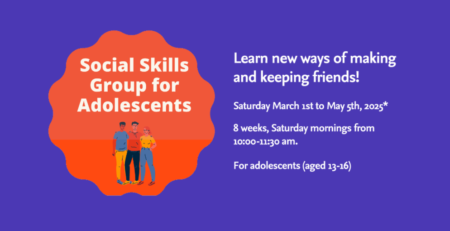3 Unique Ways to Overcome Depression
One of the most prevalent forms of mental illness in our culture today is depression. With over 260 million people worldwide being affected by its crippling symptoms, this mental illness is one that requires careful treatment. And unfortunately, due to the global pandemic, these numbers have been on the rise around the world.
In fact, a 2021 survey confirmed that one in four Canadians (or 25%) 18 years or older reported experiencing symptoms of depression due to the pandemic. With such pervasiveness, depression should not be taken lightly.
As such, if you or someone you know is battling depression, keep reading. Because today, we’re going to be exploring how to identify depression as well as what we can do to treat it.
What is Depression?
Depression is a common mental health disorder that affects your emotional well-being. It can negatively influence your outlook or perspective on life, the way you feel, and even how you act and live. Depression is typically described as a feeling of “hopelessness”. People have often expressed feelings of all the joy and pleasure being sucked out of their daily experiences.
The condition can make you feel as if nothing can or will ever improve. Thus, the individual becomes stagnant in life – abdicating many of their responsibilities and obligations.
Signs & Symptoms of Depression
Depression shares a few similarities with less severe emotional surges (e.g. sadness, apathy, passivity, etc). That’s why it’s important to know what truly constitutes “depression”. Here are some of the signs and symptoms you can expect to see in someone who is depressed:
- Energy levels drop or vanish
- Loss of appetite or increased appetite (some depression sufferers use food as a coping mechanism)
- Aches & pains
- Empty and void feelings such as hopelessness
- Irritability & frustration over trivial things
- Sleep troubles (sleeping too much or not sleeping enough)
- Frequent thoughts of suicide and death
Treatment Options for Depression
Symptoms of depression – if not properly treated – can last for months, or even years. As a result, your quality of life will be tremendously impacted, as it will be harder to enjoy the simple things that used to give you satisfaction and fulfillment. For these reasons, it’s important to get treatment as soon as possible once your condition has been diagnosed.
Luckily, there are many treatment options available to begin the recovery process from depression.
1. Cognitive Behavioural Therapy (CBT)
CBT helps you to develop an awareness of your negative thought patterns, and as a result, can assist you with changing them. Once you begin reframing your thinking – especially in situations that trigger depressive thoughts, you become better at handling and controlling them over time.
CBT can also offer coping skills like meditation or journaling to help you reflect upon bouts of depression.
2. Art Therapy
Art therapy is a meditative practice. It involves allowing a depressed individual who may be feeling immense pressure in life to slow their pace; exploring and surveying the problems that are taking place in their reality. It offers a unique way to healthfully handle and deal with their depressive thoughts, feelings, and mood swings.
3. Meditation
One of the benefits of meditation is that it alters certain regions of the brain; specifically, regions that are connected to depression. This is due to the development of consciousness while meditating. Meditation helps you to become more aware of your thinking patterns.
But more than that, it helps you to realize that you don’t have to become reactive to negative thoughts and emotions. This gives you a greater sense of control over your thinking patterns as well as the feelings associated with them.
Other Services
There are many conditions and ailments that affect people. And when such is the case, a helping hand and sympathetic ear can often be the difference between a healthy recovery and a life of misery. For this reason, we here at Family Psychology Place offer a myriad of services to help you live a better and happier life.
View the list below to see which services are most appropriate for you, your family, and your situation.
Anxiety
Everybody deals with anxiety to one degree or another, it’s simply part of the human condition. However, there are circumstances where anxiety has become rampant and has taken over some people.
If you’re experiencing frequent bouts of dizziness, dreadful thoughts of bad things happening, nausea, vomiting, and a fear of people, places, and activities, you may be suffering from an acute form of anxiety.
The Family Psychology Place can help. Contact us to learn more.
Grief and Loss
Every person will experience grief and loss differently. At Family Psychology Place, we provide a warm and open environment that will encourage you to feel safe and secure. Typically, grief is the result of some type of loss:
- Job loss
- Losing your home in a natural disaster
- Losing a loved one
- The ending of a relationship
Our qualified professionals can assist you with managing your loss in a healthy and constructive manner.
Trauma
Trauma is the aftermath of a highly stressed situation. It can stem from the loss of a loved one, a car accident, robbery/mugging, divorce, etc. The results of trauma – if not attended to appropriately – can leave you disconnected and alone. This is due to trauma impacting your mental health and emotional wellbeing.
Regions of the brain that functioned in a certain way previously are sometimes changed and rewired to function another way due to your physically and emotionally intense reactions to the trauma.
Obsessive-Compulsive Disorder (OCD)
Do you find yourself frequently and incessantly repeating thoughts or phrases in your mind? Do you do the same thing repeatedly over and over until an immense sense of satisfaction ensues? If so, you may have OCD. Obsessive-compulsive disorder is a mental illness that results in uncontrollable and recurrent thoughts and/or actions.
As such, these incessant thoughts and actions feel as if they must be repeated over and over; continually. This is the prime example of OCD operating behind the scenes. We here at Family Psychology Place can help. Contact us to learn more.
Social Skills
Are you introverted, anti-social, shy, or simply put, don’t have the skills or confidence to be as sociable as you’d like to be? If so, the Family Psychology Place can be of assistance. A lack of social skills can hold you back in many ways. It can hinder you in finding a good job, a romantic relationship, or even finding more friends.
Don’t let this slow you down any more than it has already. Contact us today to learn how we can help you overcome your bashful tendencies and to be more confident and self-assured in your social interactions.
Final Thoughts
Whether you’re dealing with anxiety, OCD, trauma, a lack of social skills, or depression, we here at the Family Psychology Place are here to help. With locations in both North (#226, 1829 Ranchlands Blvd NW) and South (10333 Southport Rd SW, Main Floor)














